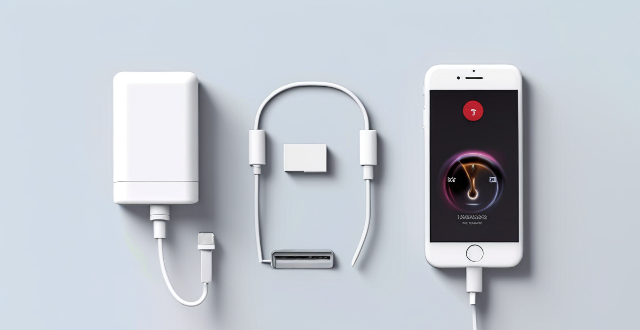The article discusses the pros and cons of wireless chargers versus traditional charging cables for smartphones. Wireless chargers are convenient, portable, compatible with multiple devices, and cleaner than traditional cables, but they tend to be slower and more expensive. Traditional cables offer faster charging speeds, wider compatibility, and durability at a lower cost, but can be inconvenient and messy. The choice between the two depends on individual preferences and needs.

Are Wireless Chargers Better Than Traditional Phone Charging Cables?
Wireless chargers have become increasingly popular in recent years, and many people are wondering if they are better than traditional phone charging cables. In this article, we will explore the advantages and disadvantages of both options to help you make an informed decision.
Advantages of Wireless Chargers
- Convenience: One of the biggest advantages of wireless chargers is their convenience. You simply place your phone on the charging pad, and it starts charging automatically. There's no need to fumble with cords or plugs.
- Portability: Wireless chargers are typically smaller and more portable than traditional charging cables, making them easy to carry around with you.
- Compatibility: Many wireless chargers are compatible with multiple devices, so you can charge your phone, tablet, and even your smartwatch all on the same pad.
- Cleanliness: Since there are no cords involved, wireless chargers tend to be cleaner and more hygienic than traditional charging cables.
Disadvantages of Wireless Chargers
- Slower Charging Speed: Wireless chargers typically charge slower than traditional charging cables, especially when compared to fast charging cables.
- Cost: Wireless chargers can be more expensive than traditional charging cables, especially if you need to purchase additional accessories like a charging pad or stand.
- Compatibility Issues: Not all phones are compatible with wireless charging, so you may need to check if your device supports it before purchasing a wireless charger.
- Heat Generation: Wireless chargers can generate heat while charging, which can potentially damage your phone's battery over time.
Advantages of Traditional Charging Cables
- Faster Charging Speed: Traditional charging cables typically offer faster charging speeds than wireless chargers, especially when using fast charging cables.
- Cost-Effective: Traditional charging cables are generally less expensive than wireless chargers, making them a more cost-effective option for most users.
- Wide Compatibility: Most smartphones come with a traditional charging cable, so compatibility is rarely an issue.
- Durability: Traditional charging cables are typically more durable than wireless chargers, as they don't have any moving parts or fragile components that can break easily.
Disadvantages of Traditional Charging Cables
- Inconvenience: Traditional charging cables require you to physically connect your phone to the charger, which can be inconvenient compared to simply placing your phone on a wireless charging pad.
- Tangled Cords: Traditional charging cables can become tangled and messy, especially if you have multiple cords for different devices.
- Damaged Ports: Over time, constantly plugging and unplugging your phone from the charger can cause damage to the port on your device.
- Limited Mobility: With traditional charging cables, you're limited to how far away from the outlet you can be while charging your device. This isn't an issue with wireless chargers since they don't require a direct connection to an outlet.
Conclusion
Both wireless chargers and traditional phone charging cables have their advantages and disadvantages. It ultimately depends on your personal preferences and needs as to which option is better for you. If convenience and portability are important factors for you, then wireless chargers may be the way to go. However, if faster charging speeds and cost-effectiveness are more important to you, then traditional charging cables may be the better choice.